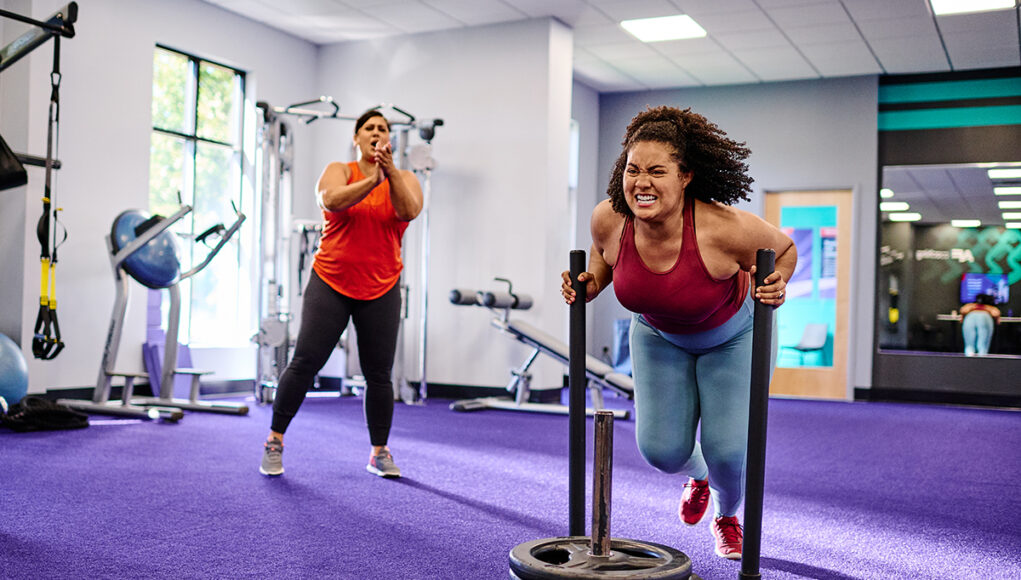Beginner Fat Loss Workout Plan: Guide to Getting Lean and Fit
Losing body fat is a goal shared by millions, but for beginners, the journey can feel overwhelming.
With so much conflicting advice and complicated workout routines out there, it’s hard to know where to start. The good news is that fat loss doesn’t require fancy equipment, endless cardio, or starvation diets.
What you need is a clear, structured workout plan that’s sustainable, effective, and tailored for beginners.
This guide will walk you through a complete fat loss workout plan designed for those just starting out. We’ll cover the principles behind fat loss, how to structure your weekly workouts, and tips to help you stay consistent and see real progress.
Understanding Fat Loss Basics
Before jumping into the workouts, it’s important to understand what fat loss really is. At its core, fat loss comes down to a caloric deficit—burning more calories than you consume. You can achieve this through a combination of exercise, daily movement (like walking), and proper nutrition.
However, not all weight loss is good weight loss. You don’t want to just lose weight; you want to lose fat while preserving muscle. That’s what creates a lean, fit, and athletic appearance. This is where a smart workout plan plays a crucial role.

The Key Elements of a Fat Loss Workout Plan
A beginner-friendly fat loss plan should include three essential components:
- Resistance Training – to build and preserve muscle mass.
- Cardiovascular Exercise – to burn calories and improve heart health.
- Active Recovery / Daily Movement – to support metabolism and prevent stagnation.
Let’s break each one down.
Resistance Training: The Foundation of Fat Loss
Many beginners mistakenly think that fat loss is all about cardio. In reality, resistance training is one of the most effective tools for losing fat. Why? Because muscle burns more calories at rest, and strength training helps preserve that muscle while in a calorie deficit.
Weekly Resistance Training Plan (3 Days per Week)
Each workout should target the full body, using compound movements that recruit multiple muscle groups. Start with bodyweight exercises or light weights, and progress as you get stronger.
Day 1: Full Body Workout A
- Squats – 3 sets of 10 reps
- Push-ups (or incline push-ups) – 3 sets of 8–10 reps
- Bent-over Dumbbell Rows – 3 sets of 10 reps
- Glute Bridges – 3 sets of 12 reps
- Plank – 3 rounds of 30 seconds
Day 3: Full Body Workout B
- Lunges (bodyweight or dumbbell) – 3 sets of 10 reps per leg
- Dumbbell Shoulder Press – 3 sets of 10 reps
- Deadlifts (using dumbbells or kettlebell) – 3 sets of 10 reps
- Bird Dogs – 3 sets of 10 per side
- Mountain Climbers – 3 rounds of 30 seconds
Day 5: Full Body Workout C
- Step-ups – 3 sets of 10 reps per leg
- Incline Dumbbell Bench Press – 3 sets of 10 reps
- Lat Pulldown or Resistance Band Pull-aparts – 3 sets of 12 reps
- Side Planks – 3 rounds of 20 seconds per side
- Jumping Jacks – 3 rounds of 30 seconds
Take 30–60 seconds rest between sets, and focus on form over weight. As your body adapts, increase resistance or reps gradually.
Cardiovascular Training: Burn Calories and Boost Endurance
Cardio helps increase your calorie burn and improves cardiovascular health, which is especially important if you’re sedentary or have a desk job.
Weekly Cardio Plan (2–3 Days per Week)
Steady-State Cardio (Low to Moderate Intensity):
Activities like brisk walking, cycling, or using the elliptical for 30–45 minutes. This is easy on the joints and ideal for beginners.
High-Intensity Interval Training (HIIT):
Optional once you build some endurance. HIIT involves short bursts of high effort followed by rest. For example:
- 30 seconds of sprinting or fast cycling
- 90 seconds of slow pace or rest
- Repeat for 15–20 minutes
HIIT can burn more calories in less time but may be challenging at first. Start with steady-state cardio and gradually add in intervals.
Active Recovery and Daily Movement
On rest days, avoid being completely inactive. Non-exercise activity thermogenesis (NEAT), like walking, doing chores, or taking the stairs, plays a significant role in fat loss.
Aim for 7,000–10,000 steps per day, even on rest days. Walking is a low-impact way to stay active and support fat burning.
Weekly Workout Schedule Example
| Day | Activity |
| Monday | Resistance Training (Workout A) |
| Tuesday | Cardio (Walk or Bike 30–45 min) |
| Wednesday | Resistance Training (Workout B) |
| Thursday | Rest or Light Activity (Walk) |
| Friday | Resistance Training (Workout C) |
| Saturday | Cardio (Optional HIIT or Walk) |
| Sunday | Active Recovery or Full Rest |
Nutrition Tips to Support Your Workouts
Your workouts are only one piece of the puzzle. Fat loss is heavily influenced by what and how much you eat.
Here are a few beginner-friendly guidelines:
- Eat in a slight calorie deficit (about 300–500 calories below maintenance).
- Focus on protein with every meal to support muscle maintenance and reduce hunger.
- Limit processed foods and sugary drinks.
- Stay hydrated—aim for at least 2 liters of water per day.
A simple meal plan with whole foods—lean protein, vegetables, whole grains, and healthy fats—can go a long way.
Tips for Staying Consistent
- Start small and build habits. You don’t have to be perfect—just consistent.
- Track your workouts and progress to stay motivated.
- Don’t rely solely on the scale. Use measurements, progress photos, and energy levels to assess changes.
- Set realistic goals like “work out 3x this week” or “walk 8,000 steps daily.”
Remember: fat loss is a gradual process. Aim for 1–2 pounds per week and focus on creating long-term habits.
Conclusion
A beginner fat loss workout plan doesn’t need to be complicated. With a balanced mix of resistance training, cardio, and daily activity, you can steadily reduce body fat while building strength and confidence.
Pair this with a solid nutrition strategy, and you’re setting yourself up for real, lasting results.
Whether your goal is to shed a few pounds, feel better, or completely transform your physique, this beginner plan is a sustainable starting point. Stick with it, be patient, and celebrate the small victories along the way.







